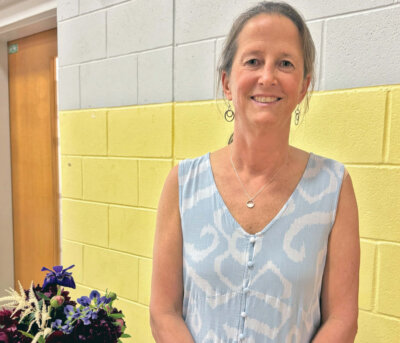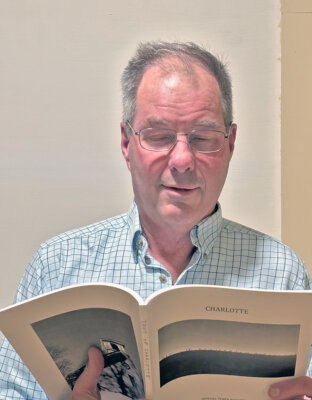Restrictions on immigration communication confused
State officials overseeing fair and impartial policing voted Tuesday to largely restrict Vermont police from reporting undocumented people to federal immigration agents. Or did they?
It seemed like the fair and impartial policing committee of the Vermont Criminal Justice Council — which regulates police training — had passed proposals to prohibit police from sharing info about someone with immigration agents without that person’s consent, unless probable cause links the person to a felony investigation.
But committee members during the meeting that morning came away confused on what they had just endorsed — and now need to revote, the council’s administration director Linsday Thivierge told Community News Service.
The committee’s confusion came from a circuitous pair of votes, each on two proposals that would be sent to the broader council for approval.
Officials first decided between two sets of rules for police. One was more moderate and favored by the Vermont attorney general’s office. The other, endorsed by Migrant Justice activists, placed more restrictions on law enforcement — and included an exception typed inside of brackets that was not explained in the document officials were reading. Committee members voted 4–2 for the stricter proposal, said chair Amanda Garcés of the Vermont Human Rights Commission during the meeting.
Then committee members voted on another pair of policies: The first, endorsed by Migrant Justice, simply stated the policy doesn’t intend to violate federal law. The second, endorsed by attorneys for the state, named two federal laws that say a state cannot prevent its employees from talking about a person’s citizenship or immigration status with federal authorities. The committee adopted the Migrant Justice one 4–3, Garcés announced after the vote.
According to Will Lambek, a Migrant Justice organizer, the second result meant the bracketed exception in the first vote would be disregarded. Otherwise, he told committee members, the two adopted proposals would be incompatible.
But some committee members thought the bracketed text would stand regardless of their second vote. Others had no idea which interpretation was correct. Debate broke out. “I’m a little bit frustrated with the nature of this conversation,” said committee member Karen Tronsgard-Scott, executive director of the Vermont Network Against Domestic and Sexual Violence. “I’m not an attorney.”
Because of the confusion, Thivierge said Wednesday, the council will revote on both policies in the “very near future” but no date had been set.
Still, activists for undocumented migrants celebrated the move.
“We are so happy that we’ve taken this big step forward today by having the subcommittee recommend stronger language to protect our rights,” said Enrique Balcazar, an organizer for Migrant Justice, speaking after the meeting through a translator.
Migrant Justice has been advocating for officials to adopt a policy mirroring one used in Winooski and eight other jurisdictions. “We don’t want interactions with the Vermont police to end up with our community being detained and deported,” Balcazar said.
The proposed changes are similar to the council’s impartial policing policy as passed in 2017, before it was loosened later that year. Activists felt that, “during the height of the Trump repression,” the state was pressured to scale back, said Lambek during the meeting.
“It really sent shockwaves through our community,” said Balcazar in the interview. “Having our hard-fought protections taken away was a real blow.”
Law enforcement, Lambek told committee members, has used loopholes in the 2017 policy to justify coordinating with federal agents.
Balcazar described an incident on the Champlain Islands to illustrate that point. “The Grand Isle County Sheriff’s Department — they were performing a welfare check on two farmworkers, and they called the Border Patrol for help entering into the house of the workers. And those workers ended up being arrested and detained by Border Patrol. And that’s something that never should have happened. There’s no reason for them to involve federal immigration agents in something like that,” he said.
Legislators first created a timeline to develop a fair and impartial policing plan in 2014 before the model policy went into effect three years later.
On the first Migrant Justice–backed policy, those who voted in favor were: Tronsgard-Scott, Vermont Executive Director of Racial Equity Xusana Davis, Garcés and Tabitha Moore, founding president of the Rutland NAACP. Those opposed were: Vermont State Police Capt. Barb Kessler and game warden Lt. Jason Gravelle.
South Burlington Police Department Lt. Gregg Jager, Glenn Boyde of the Department of Corrections and Tim Lueders-Dumont of the Vermont Department of State’s Attorneys and Sheriffs abstained, and warden service Col. Justin Stedman left prior to the votes.
On the second Migrant Justice–backed policy only Jager changed his stance — voting no rather than abstaining.
The committee appeared uncertain about rules of procedure and how to count the votes.
After the first set of votes were cast, Garcés, the chair, asked, “So how does this work?”
“I think it carries, right?” someone said in response. The committee then moved on.
Stedman, who is director of the Vermont Fish and Wildlife Department’s warden service, was the only committee member to express opposition to the eventually passed policies during discussion Tuesday ahead of the votes.
“My son plays with the child of migrant farmworkers, and I have seen how they look at me when I pull into their driveway. It does pain me immensely because there is no doubt that there is fear in their eyes,” said Stedman, before adding he couldn’t endorse the policy because it lacked support from the attorney general’s office.
Assistant Attorney General Erin Jacobsen referred to federal restrictions that say local police can’t be prohibited from sharing citizenship information with federal agents. And Vermont law, Jacobsen said, says any laws in conflict with those federal ones are nullified.
A December date was floated during the meeting for the committee to propose its recommendations to the full council — it’s unclear if the need for a revote will push that timeline back.
(The Community News Service is a program in which University of Vermont students work with professional editors to provide content for local news outlets at no cost.)
Related Stories
Popular Stories
If you enjoy The Charlotte News, please consider making a donation. Your gift will help us produce more stories like this. The majority of our budget comes from charitable contributions. Your gift helps sustain The Charlotte News, keeping it a free service for everyone in town. Thank you.
Andrew Zehner, Board Chair








